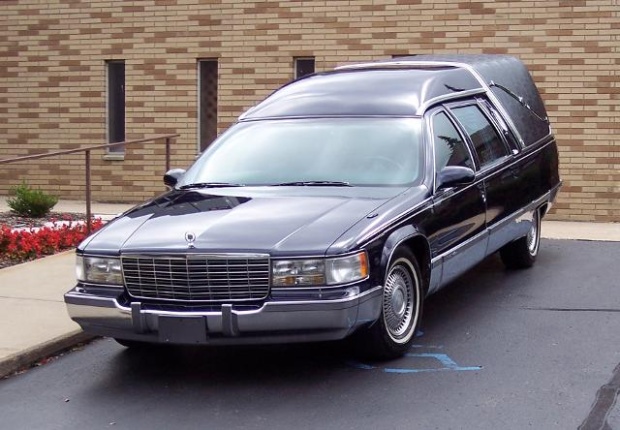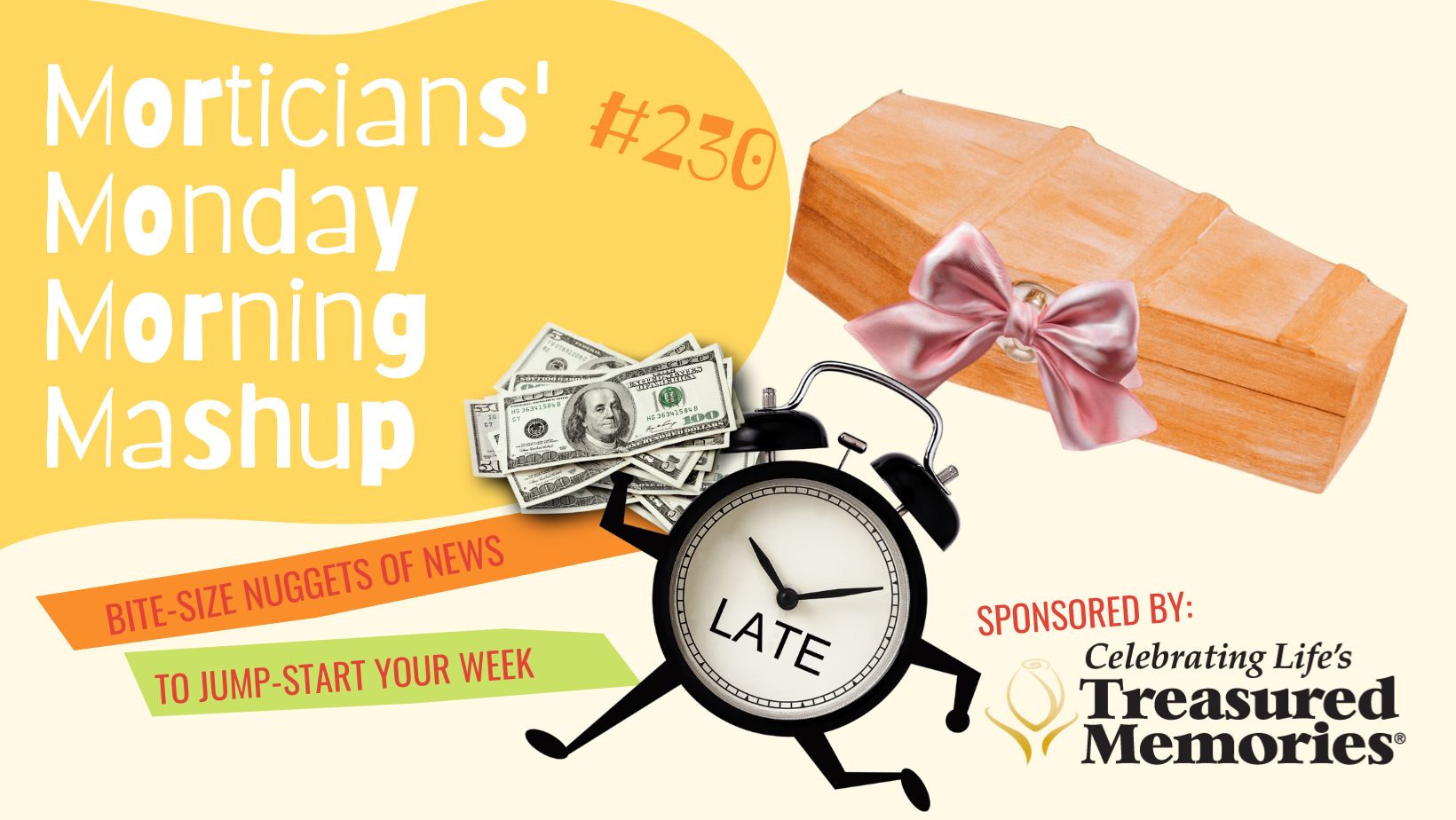Funeral Director Responds to ’13 Things a Funeral Director Won’t Tell You’
Response below has been provided exclusively to ConnectinDirectors.com by funeral director Phil Zehms.
Phil Zehms has worked in funeral service since 1998 and is currently the Managing Partner and Funeral Director at the Dwayne R. Spence Funeral Homes in Pickerington and Canal Winchester, Ohio. He is also licensed in Missouri and has a variety of experience with at-need, pre-need, cemetery, funeral, pet services, and is a certified cremationist.
I received a link on my Facebook page about the 13 things your Funeral Director won’t tell you. The article from Reader’s Digest is, I am sure, to generate the conversation about the “bad funeral director”, and there are some. The majority, however are good. There are many people who feel that funerals are “overpriced”; our job requires us—and our staff—to be ready at a moment’s notice, and respond immediately to their emergency. We are proud to do so, and have the skills and training to assist on the hardest days of a family’s life. Our facilities are generally well kept, and vehicles clean—imagine your disgust if your funeral home of choice was dirty and unkempt, there would be scathing articles about the “horrible conditions”. Clean, well decorated buildings do not happen by themselves they are usually designed to put families at ease. We only work half days, it’s just which 12 hours we work that varies. Funeral and cemetery services are a major purchase that most do not want to make.
Below are the 13 items from the Reader’s Digest article, and my response to each item. Here is the link to the article: http://www.rd.com/slideshows/13-things-a-funeral-director-wont-tell-you/
1.Go ahead and plan your funeral, but think twice before paying in advance. You risk losing everything if the funeral home goes out of business. Instead, keep your money in a pay-on-death account at your bank
Preplanning a funeral is a good idea for everyone. Leaving a roadmap of sorts for your family as to your wishes. This exercise should include gathering the information for the obituary and the death certificate. Often we will hear peoples say they don’t want a service—no muss no fuss–. We all must remember that the funeral services help us with the grief journey and are for those who are left to grieve. I often use the analogy of planning a party. If I were to do it for myself, I would say keep it simple… but if planning a party for someone important to me, then I want it to be special for them. A wonderful resources is http://famic.org/ . Pre-Paying is a good idea if at all possible; most funeral homes will allow a single or monthly payment in advance of services but not when there is an immediate need. Be careful when selecting a funeral home for pre-paying. There are an increasing number of funeral homes that do NOT guarantee services or merchandise. A guaranteed funeral can mean thousands of dollars in savings to the family when it is time for the family. With a guaranteed pre-paid funeral “locks in” the cost to the family for the services and merchandise, meaning the funeral home takes the risk. A non-guaranteed arrangement is simply cash at the time of service to offset the then current prices. Additionally, prefunding a funeral can help with qualifying for Medicaid; traditional bank accounts do not. Further, if an account is paid on death (POD) to a family member—there will be delays sometimes more than a year, in getting to the money because of needing a death certificate, probate, weekend, holidays or other delays. If a funeral home closes is sold, you move to a different state etc. The money in YOUR funeral account belongs to you. It can transfer where you go. When transferred, it is up to the receiving funeral home to honor the original arrangements as guaranteed or not. The funeral home entrusted with the arrangements, if the original funeral home is out of business, is obligated by law to honor the guaranteed pre-paid arrangements. They are the ones who will take the loss and the family will have the funeral that was arranged with no additional charges except for upgrades and additional items like newspaper notices, grave openings, minister’s etc. These items can be prefunded as well but are generally not guaranteed.
2. If you or your spouse is an honorably discharged veteran, burial is free at a Veterans Affairs National Cemetery. This includes the grave, vault, opening and closing, marker, and setting fee. Many State Veterans Cemeteries offer free burial for veterans and, often, spouses (www.cem.va.gov)
The National Cemetery will provide a grave, grave opening, outer burial container and lettered headstone for an honorably discharged veteran, spouse and any dependent children. Not every city has a National Cemetery close by. The closest one to us, is Dayton National Cemetery, this is more than an hour away. Most families want that person who is important to them closers. Some cemeteries do offer discounts for veterans; be sure to ask when making your cemetery purchase. Additionally, the VA will provide a bronze, marble or granite headstone for the veteran—not the spouse—if he or she is buried in a cemetery other than a national cemetery. There may be charges for the foundation or installation—and other restrictions may apply; often a matching spouse marker is available for purchase.
3. You can buy caskets that are just as nice as the ones in my showroom for thousands of dollars less online from Walmart, Costco, or straight from a manufacturer.
This is true, be sure that you are comparing apples to apples. Some of these suppliers are using caskets that are made in China, India or other countries and the quality is not the same. When a casket is purchased from the funeral home they will ensure it is the correct color, that it is not damaged and is delivered on time for the service. With any purchase if you work hard enough, you can find it cheaper; watch for shipping and processing fees. If you find a less expensive price for a similar looking or the same casket—give “your” funeral home an opportunity to match that price. If budget is a concern, as it is for most, be honest with your funeral director who is a professional and will help you find something that will have similar eye appeal and hopefully in the price you desire.
4. On a budget or concerned about the environment? Consider a rental casket. The body stays inside the casket in a thick cardboard container, which is then removed for burial or cremation.
The rental or ceremonial casket is often used with cremation services, because of the high eye appeal and lower cost. Whether one chooses burial or cremation, most funeral homes will work with families on a budget to tailor the services to meet the service and financial needs. Funeral homes absolutely hate to have a family not pay there funeral bill. Let’s be realistic, if you have services at XYZ funeral home and never pay the bill. What are the odds you will call them the next time you have a death? Pretty slim I would guess. The funeral home becomes the “bad guy” if they make collection efforts. Most funeral professionals want to help families if they can. Again, be honest with your funeral director and create services that will be affordable.
5. Running a funeral home without a refrigerated holding room is like running a restaurant without a walk-in cooler. But many funeral homes don’t offer one because they want you to pay for the more costly option: embalming. Most bodies can be presented very nicely without it if you have the viewing within a few days of death.
Under Section 4717.13(A)(10) of the Ohio Revised Code, human remains must be embalmed or refrigerated if final disposition has not occurred within 48 hours of the time of death. Other states have similar rules. Many funeral homes require one or the other after 24 hours for health and sanitary reasons. Embalmers go to school to study and practice the art, yes art, of preservation, preparation and presentation of the deceased. Your memory picture of that person will, in most cases, be much better with embalming. Embalming is not required, but it may limit the types and timing of services available.
6. Some hard-sell phrases to be wary of:
“Given your position in the community …,” “I’m sure you want what’s best for your mother,” and “Your mother had excellent taste. When she made arrangements for Aunt Nellie, this is what she chose.”
“Some people have worked hard all their lives and deserve the very, very best, wouldn’t you agree Mrs. Jones”… was a scripted phrase a now defunct preneed company. I am sure there are some “hard sell” tactics used as they are in any profession. The majority of funeral directors want to educate and give options, letting the family choose what is best for them; which leads to a more satisfied customer and creates less remorse about selections made. As far as sharing what was selected for previous family members served, I think it is a fine practice, as most families make funeral arrangements every 7 years and may want to have the same service for their mother, that she had selected for her sister. This is another reason for preplanning services. It ensures the deceased gets what they want.
7. “Protective” caskets with a rubber gasket?
They don’t stop decomposition. In fact, the moisture and gases they trap inside have caused caskets to explode.
I have not heard of a casket exploding because of the protective gasket. There have been reports of imploding due to pressure changes on airplanes; although I have never been witness to one. The gaskets are generally manufactured to let the air and gasses escape while keeping out the cemetery elements (bugs, water and dirt) embalming is what is commonly used to slow the decomposition of a deceased. If a gasket on a casket, or a vault that “seals”, gives peace of mind to the family or individual then why not; there are options for gaskets and non-gaskets.
8. If there’s no low-cost casket in the display room, ask to see one anyway.
Some funeral homes hide them in the basement or the boiler room.
Most funeral homes have a variety of priced caskets displayed. If there is a particular color or price and it is not in the display room, the funeral director should be able to make recommendations and show pictures of what is available. These days most funeral homes do not have boiler rooms nor are they trying to hide options from families.
9. Ask the crematory to return the ashes in a plain metal or plastic container — not one stamped temporary container.
That’s just a sleazy tactic to get you to purchase a more expensive urn.
I am surprised by this one, I would have thought they would let people know they can provide their own urn if they wish and don’t have to purchase a traditional urn. Several years ago, a lady asked us to place her husband in her cookie jar… because “he was always in the cookies anyway.” When a box has a label or is imprinted with “temporary container” it is to show that over a period of time the container—particularly a cardboard one, may break down especially in a damp environment. Again, education and options are the key.
10. Shop around. Prices at funeral homes vary wildly, with direct cremation costing $500 at one funeral home and $3,000 down the street. (Federal law requires that prices be provided over the phone.)
Prices do vary, as stated about purchasing a casket, be sure you compare apples to apples. Who does the cremation for the funeral home? Do they include an identification prior to the cremation? Are there other services like aftercare? The cheapest is not the best. If I want to be the low cost leader, then I am looking for every shortcut I can find to make it cheap. The cheapest cremation provider—maybe not operated by a licensed funeral director, or a warehouse or industrial building for the cremation. When comparing, if price is the most important thing and you don’t care how you or your family is treated, then you will be able to find it cheap. If you want your loved one to be treated with respect and dignity, then it may cost a little bit more. Is peace of mind worth it? You have to decide.
11. We remove pacemakers because the batteries damage our crematories
We do remove pacemakers because the batteries in them will explode and can damage the equipment. A cremation machine is not cheap to own, operate or maintain, and keeping things like that from happening helps keep our equipment in good working order. We disclose the removal of pacemakers on our cremation authorization form and receive permission to remove it—even return it to the family if they wish. Additionally, after the cremation if there is any metal like buttons from jeans, or staples, screws from a casket or replacement hips, knees etc. they are removed and recycled or disposed of depending on the family’s wishes.
12. If I try to sell you a package that I say will save you money, ask for the individual price list anyway. Our packages often include services you don’t want or need.
Federal Law requires that a General Price List (GPL) be given to the family prior to making funeral arrangements, so getting a breakdown of prices should be automatic. A trustworthy funeral home will have no problem showing the al a carte pricing versus the package price and saving.
13. Yes, technically I am an undertaker or a mortician. But doesn’t funeral director have a nicer ring to it?
Our jobs as funeral directors is to give families guidance, give them options and help them create services that will be meaningful to them and to honor life. We are funeral professionals. We serve our communities with pride, with reverence for the deceased and care for those who are grieving.
Phil Zehms has worked in funeral service since 1998 and is currently the Managing Partner and Funeral Director at the Dwayne R. Spence Funeral Homes in Pickerington and Canal Winchester, Ohio. He is also licensed in Missouri and has a variety of experience with at-need, pre-need, cemetery, funeral, pet services, and is a certified cremationist.




